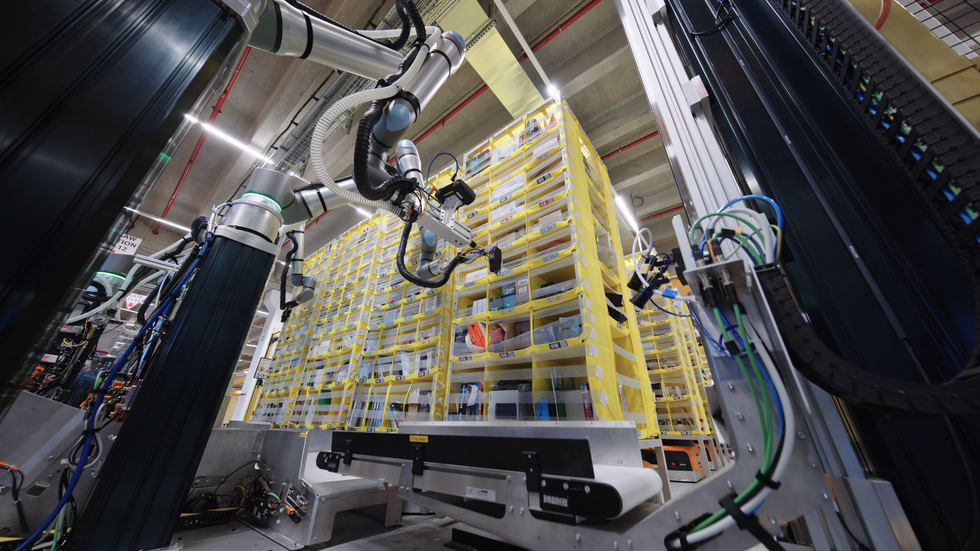Now Reading: Amazon’s Vulcan Robots Revolutionize Package Sorting
-
01
Amazon’s Vulcan Robots Revolutionize Package Sorting
Amazon’s Vulcan Robots Revolutionize Package Sorting

Quick Summary
- Amazon has introduced Vulcan robots capable of stowing and picking items in warehouses at human-like speeds.
- These robots tackle the challenge of identifying, extracting, and handling jumbled items stored in bins-a task traditionally difficult for automated systems due to clutter and variability.
- Vulcan utilizes AI-driven techniques to learn item properties like fragility, squishiness, or tendency to get stuck. this improves decision-making during manipulation tasks.
- A conveyor system assists the robot in transferring items after extraction for efficient operation while reducing complexity.
- Robots employ visual servoing-adjusting their movements based on real-time observations-to avoid errors during operations.
- Live testing in Germany has shown that the robots match human performance speed-wise but rely on humans as backups when encountering remarkable cases or errors.
- The technology benefits human workers by reducing physical strain when accessing high or low bins in warehouse setups.
Image Description:
Automation robots retrieving boxes from yellow storage containers.
Video Links:
Includes demonstrations showcasing robotic arm precision strategies using conveyors and AI algorithms.
Indian Opinion Analysis
Amazon’s advancement with Vulcan robots reflects ongoing efforts to transform logistics using automation powered by artificial intelligence. While such innovations promise increased efficiency globally, thay hold particular relevance for India-a country with a burgeoning e-commerce sector dependent on large-scale fulfillment infrastructure similar to Amazon’s warehouses.
For India, where technological adoption needs alignment with vast economic disparities between labor-intensive industries and AI-enabled automation advancements, these developments provoke critical questions about scalability versus employment impact.Even though Amazon emphasizes complementing rather than replacing human workers with robotics at this stage, broader implications may arise if such technologies reduce reliance on manual jobs over time-an area of concern for nations relying heavily on warehouse labor forces.
Nonetheless,incorporating bright systems into fulfillment centers could alleviate some physical burdens faced by workers operating under challenging conditions while setting a benchmark model that Indian companies might adapt progressively across sectors like logistics or manufacturing environments seeking better productivity alongside workforce welfare.

























